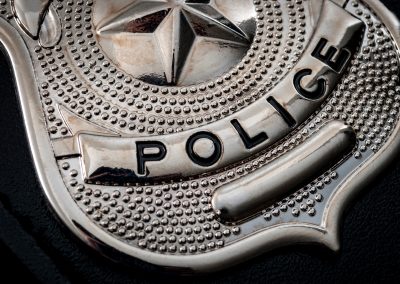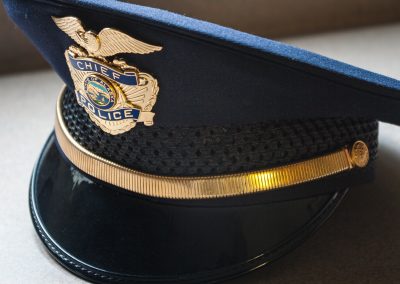Back in May I wrote an article suggesting that a lack of proactive policing would lead to more violent crime in places like Baltimore, where the police are vilified and where the population is most vulnerable. In fact, that article took as its premise another article I wrote way back in September of 2013 with the provocative title of “Stop Working.”
I say “provocative” because I received some heated emails and phone calls from chiefs, sheriffs and even a lawyer. They objected to the title of the article and feared it was advocating a police work-stoppage. It wasn’t.
So as provocative as it may have been back then, today it seems as though it was also somewhat prophetic.
The director of the FBI, James B. Comey, made comments yesterday that suggest what I predicted is actually happening among police departments in many of America’s cities.
Here are some direct quotes from FBI Director James Comey at the University of Chicago Law School just last week.
“I fear we are facing another wave of violent crime and homicide, and our communities are once again in trouble. And the trouble is complicated, layered, and painful.”
“I imagine two lines: one line is law enforcement and the other line is the folks we serve and protect, especially in communities of color. I think those two lines are arcing away from each other, at an increasing rate.”
“And just as those lines are arcing away from each other—and maybe because they are arcing away—we have a crisis of violent crime in some of our most vulnerable communities across the country.”
“In cities across the country, we are seeing an explosion of senseless violence.”
There are two trends, as Comey says, both of them disturbing. He describes them his way (above) and I describe them like this: Violent crime is going up in our cites as police are being maligned and held in suspicion regardless of their actions—and, I believe, they are very much related.
Some call it the Ferguson effect, but it predates Ferguson (“Stop Working” was written nearly a year before the world knew Michael Brown and Darren Wilson). What it involves is simple human nature. When there’s no downside to inaction, and when the only downsides come from action—regardless of intention—then inaction will become the chosen path.
Let me make it crystal clear.
On the T.V.
Three days ago, while I was sitting at a bar at the host hotel of the International Association of Chiefs of Police (IACP), a 16-second video played over and over on the television screen. The chiefs watched it like it was the final seconds of the Super Bowl.
It was disturbing on several levels.
On the most superficial level, a grown man was shown flipping a girl and dragging her out of her desk in a high school classroom. The grown man was police officer, a white police officer to be specific as that was the gist of the stories, and the girl was African American. Needless to say the talking heads were having a field day.
But what disturbed me as a police officer was what wasn’t being shown or discussed. I asked myself, how did this cop end up in that classroom? What was the expectation of the teachers and administrators who summoned him? What kind of administration does this school have? What happened before the officer went hands-on? Was the girl told she was under arrest?
But the big question on my mind, and one that has been consuming me as I talk to officers every week around the country was this: How many of these assembled chiefs, sitting in this room around me, would have the integrity to do the right thing? That is: To investigate the incident impartially despite political pressures. On the other hand: How many would choose to do the politically expedient thing and fire the officer without a thorough and impartial investigation?
Well, it didn’t take long in this case to find those particulars out: the deputy’s been fired.
I’m not saying that what he did was right. (I don’t know because I don’t know all the facts.) But I do know this: It takes more than 24 hours to investigate such an incident. (If you think being an SRO isn’t a difficult job, just talk to the four who were assaulted and injured in Allentown, Pa., this week.)
So now I have several more questions:
- Why was he fired though a thorough investigation couldn’t have been completed?
- What message does it send to both the cops and the public in general?
- Are police now expendable cogs to be discarded when politically convenient?
- Will this affect the behavior of police in the future?
- Will it affect the communities they serve?
Who Would Want to be a Cop Today?
Back in February, Calibre Press conducted a poll of police, in which 81% of nearly 3,500 respondents said that they would not recommend that their child become a police officer. Think about how telling that is!
Police work has been a generational thing in many families (I’m third generation). It’s become professionalized to the point where most colleges now have criminal justice programs. Moreover, according to polls, it’s been one of the most respected professions in this country for decades (much, much higher than the media and politicians, by the way).
But how is the profession as a whole being portrayed today?
Questions, & Answers
When politicians try to find quick answers and even quicker fixes to explain the uptick in violence in their communities, they find an easy and vulnerable target: The cops!
Blame them. What’s the downside?
Well here’s two.
- People are dying because proactive police work has proven to be dangerous for the careers of police officers.
- The pool of qualified people is going to shrink when it comes to those interested in making a career in the law enforcement profession. I mean, if cops are telling their kids not to do it, who will advocate for this profession as a career choice?
Final Thoughts
Here are a few opinions based on 35 years in the profession and traveling the country and talking with cops in virtually every state 40-plus weeks a year.
- Maybe 5% of this population is equipped emotionally, psychologically and physically to do this job effectively for 30 plus years. It’s tougher than it appears to be from Law and Order and T.J. Hooker reruns. Yeah, there are some are in our ranks who shouldn’t be, and many make mistakes under stress. But, still, the job is so much more difficult than the pundits will acknowledge.
- The only thing cops can do to limit crimes and criminals–and I mean the only thing–is to be proactive. ‘Stop and frisk’ isn’t a technique or tactic invented by the NYPD. It’s basic police work authorized by the U.S. Supreme Court. It stops crime. It deters criminals. When you demonize those who do it, make them jump through hoops to explain why they simply approached and verbally engaged someone, they will stop doing it. And crime will go up.
- Violent crime is up in too many vulnerable communities! No matter how you play with the statistics it’s true. Attacks on officers are up both physically and on media and social media outlets. Cops know–they absolutely know–that they’re in danger both physically and from a career standpoint. They know that the more proactive they are, the more trouble they might potentially face. So, many have pulled back significantly. And for them, there is no downside.
Comey is right. There’s a true hatred for my chosen profession today. That hatred has a purpose.
Meanwhile, the poorest, most vulnerable American citizens are the ones who will pay with their lives as inevitable police inaction allows crime to overtake our cities. I don’t think that’s the endgame ignorant protesters and cynical politicians had in mind when they chose to go down this path – or then again, for some of them, maybe it was.










0 Comments